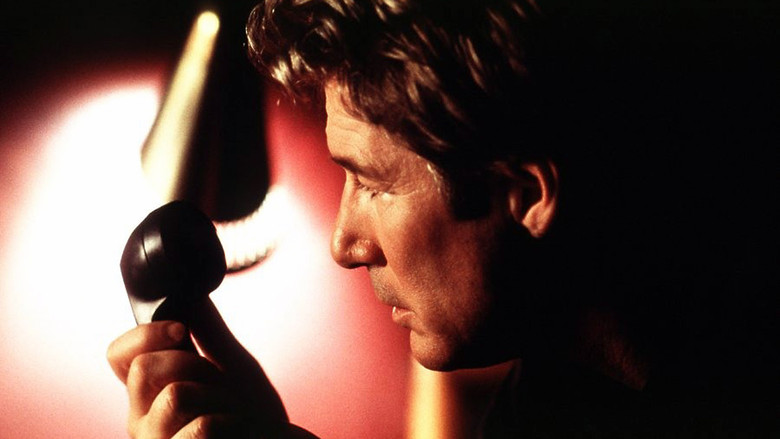It’s been a while since I’ve done one of these. Since January actually. Wow.
The Mothman Prophecies
2002. Directed by Mark Pellington

The Mothman Prophecies is, in a strange way, similar to M. Night Shyamalan’s film Signs. In both films a series of fantastic circumstances and prophetic words lead to an ultimately satisfying ending. The difference is that whereas Signs leaves us seeing God’s hand at work, Mothman never explains the source of its miraculous powers. The plot, which is based incredibly loosely on a series of reported giant moth-like creature sightings in West Virginia in 1966, involves a man, played by Richard Gere, who tragically loses his wife and finds himself in a small town haunted by a powerful, unknown force. A strange being manifests itself and leads the characters to acts that both end and save lives. Is the being good or evil? The film never gives a definitive answer, which is actually one of its best attributes. Mothman is a beautifully filmed and paced horror/thriller that doesn’t answer any of the questions it raises or elaborate on the strange occurrences it contains. If you want a moody, strangely uplifting chiller, I highly recommend a viewing.
The Future
2011. Directed by Miranda July

Miranda July is an incredibly insightful and quietly funny woman who has made the leap from avant garde performance art to dramatic filmmaking almost flawlessly. I say almost because there’s still a bit of cloyingness and self awareness left over from her wilder, revolutionary hand-held VHS days. This detritus, though a bit distracting, actually makes her films stronger by offering the viewer the unexpected more times than the conventional. The Future is her second feature and a huge step up from her first. It deals with a pitiful yet warmly recognizable couple in their mid thirties, some incredibly bad choices they make and the trials and tribulations that follow. There are some truly startling and shrewd observations made here about our culture and ourselves, and though the story ends on a cold question mark, I get the sense that what Miss July is examining and offering up is forgiveness and grace. That her characters can find the desire but not the motivation for such things is not surprising to my Christian perspective, but I still found this film quite edifying.
Match Point
2005. Directed by Woody Allen

Woody Allen doesn’t make films, he’s making and re-making the same film again and again. Each one riffs on another, so here we have the plot and themes of my favorite Allen film, Crimes An Misdemeanors, mashed with a new theme of ruthless social climbing, which Allen will later work into Cassandra’s Dream. Oh, and don’t forget the murder plot, which will be utterly recycled in Allen’s comedy film, Scoop, which he’ll shoot a year later in the some of the same locations with Scarlet Johansson, one of this film’s stars. It’s all a bit of a mess. We’ve also got all the old stand-bys: marital infidelity, guilt remaining in the absence of true moral authority, and a whole mess of talking, which is fine by me because Allen just knows how to write pitch-perfect dialog, so much so that many viewers think his actors are improvising, which in reality happens very rarely on an Allen set. This film is dark. Dark, dark, dark! It could almost be classified as a horror film, yet the intervals between the violence are so normal and slowly paced, and the mood is so sedate. One reviewer called it “cynical” and I agree, but Match Point is not anymore cynical than Allen’s other films. The message of the film is simple: fate, not justice determines consequence. That Allen will first mock this message in Scoop and then challenge it in Cassandra’s Dream two years later is not surprising. He’s more about riffing on ideas than presenting a coherent worldview. I love his work regardless.
